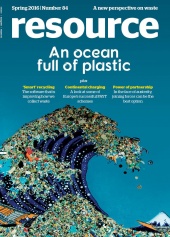It's still a battle, but thankfully with no bullets
Ray Georgeson gives a sideways view on what it means to be in the European Union.

Platt Bridge is an unassuming and typically Northern former mining village halfway between Leigh and Wigan on what was the Lancashire Coalfield. Nobody would say it was the smartest place in South Lancashire, but it certainly has heart and soul.
In the middle of the village, tucked down Neville Street, is a small and very tidy war memorial, beautifully maintained and respectful to those from Platt Bridge that lost their lives in both World Wars. It was erected under subscription after the First World War. Notably, it does not carry the names of the fallen. Why? Because in a small impoverished community they simply did not have the money for a memorial large enough to carry all the names of the many who lost their lives. Many of those men were coal miners, textile workers and farm labourers – the foot soldiers of the Great War.
One of them was my own great uncle. Lance Corporal John Georgeson lived with the rest of the large Georgeson family on Neville Street itself. He was an apprentice clog maker, another great Lancashire traditional industry alongside coal mining. He was killed in action on the Somme in February 1917 and his remains were never found. He is remembered on the Thiepval Memorial in northern France, and on the family grave in Wigan Cemetery, along with his younger brother Leonard Georgeson, who was killed in action in Normandy in July 1944. They were young men when they were killed, neither of them even reaching 30 years old.
This is my own family’s story, but it is no different to the stories of many hundreds of thousands of families that were damaged over generations of conflict between the nations of Europe. Damaged is a word that does no justice at all to the impact of conflict in Europe when one considers, for example, the horror of the Holocaust, atrocities that happened in places that we now visit as tourists and in countries we regard as good neighbours and often even family friends.

Sir Winston Churchill famously once said, “Britain will have to play her full part as a member of the European family”, and he recognised that the vision of Monnet and Schuman in driving forward the European Coal and Steel Community (ECSC) with the Treaty of Paris in 1951 was something that Britain had to embrace – eventually we did.
 This article was taken from Issue 84
This article was taken from Issue 84Those founding fathers of the post-war economic integration of historic enemies Germany and France together with the Netherlands, Belgium, Luxembourg and Italy began a rational programme based on an emotional foundation. That for me remains the basis on which I strongly support our continued membership of today’s successor organisation to the ECSC, the European Union. We have had the longest period of peace between the countries of the EU in Europe ever known and have built a remarkable organisation where battles are certainly fought on detailed policy, but thankfully with no bullets.
Of course, our island status, historic lateness to the project and sometime diffidence about aspects of our relationship with the EU gives us a distinct personality within the European family, and we see this from time to time in our own policy world of waste and circular economy. But the same applies to our friends – the French remain French, the Italians remain Italian and the Germans remain German, all within the family! We should be celebrating it and negotiating within it, not separating from it.
So, I hope that when I go to Platt Bridge in February 2017 to mark the centenary of my great uncle John’s death on the Somme, we are still part of the sometimes frustrating but ultimately remarkable European Union that has done so much to foster peace and prosperity. To be anywhere else would be an insult to his memory and those many, many thousands of fellow European foot soldiers. 






